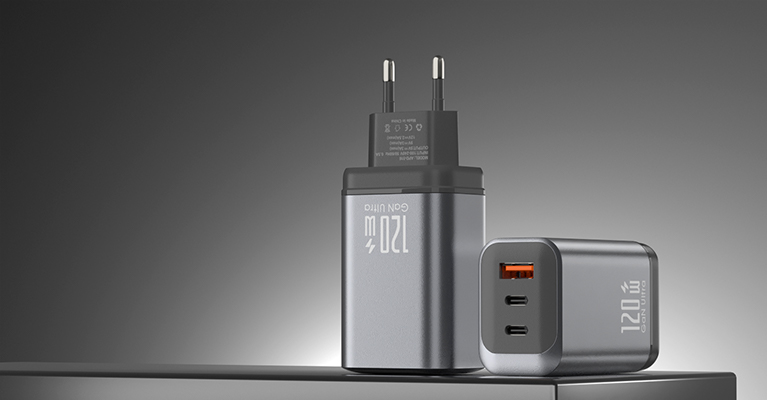
Does charging my phone overnight affect its battery life?This knowledge you need to know
Table of contents
But have you ever thought, "Is this really safe?" The truth is, your phone's battery may still be undergoing subtle cycles of drain and recharge even after you've fallen asleep.
Leaving your phone charging overnight poses safety risks, especially if you place it under a pillow, preventing proper heat dissipation, or if you use non-original or low-quality charging equipment. Therefore, it's crucial to understand the charging mechanisms and precautions of lithium batteries.
If you're still unsure whether this habit is good for your phone, this article will help you understand the issue and share tips for more efficient phone charging.

Does charging your phone overnight damage the battery?
If you've ever worried about this, or even asked yourself, "Is it really okay to charge overnight?" The answer is: if both the phone and the charger are in good condition, it shouldn't. Most smartphones today are equipped with intelligent charging management features that automatically slow down or stop charging when fully charged. However, certain special circumstances still present hidden dangers that could lead to battery problems.
Overheating is indeed the biggest threat to battery health when charging overnight. If you charge your phone under a pillow, in a thick case, or in other unventilated environments, heat can easily accumulate around the battery. Prolonged high temperatures can cause the battery's internal structure to swell and accelerate aging.
High temperatures can also weaken the phone's internal protective mechanisms, making it more susceptible to damage from voltage fluctuations. In rare cases, using low-quality or counterfeit chargers can also be dangerous. These chargers often have unstable current flow, which can easily cause overvoltage or overheating.
Does charging overnight shorten battery life?
Ideally, lithium-ion batteries should be kept between 20% and 80% charged. Continuously fully charged puts stress on the cells, causing capacity degradation. While overnight charging is convenient, proper charging practices are crucial for longer-lasting mobile phone batteries.
Is charging overnight a fire risk?
According to research by the Finnish National Rescue Agency and the University of Jyskyla, charging any device with a battery overnight can increase the risk of fire if heat dissipation is poor or a faulty charger is used. Therefore, the answer to the question, "Is charging overnight safe?" is: it is, to a certain extent.
While modern mobile phones have multiple built-in protection mechanisms, inferior or damaged chargers still pose a risk. Charging your phone on soft surfaces like pillows and blankets can hinder heat dissipation. Overheating can cause a fire if charging for extended periods.
The condition of the battery itself is also crucial. Aging, swollen, or damaged batteries are less stable during continuous charging and can burn or even explode if they overheat. Keeping your phone and accessories in good condition can significantly reduce the risk.
Best Practices for Nighttime Charging
Want to plug in and charge before bed while still ensuring safety and reliability? Here's what you can do:
Use an original or certified charger
Non-certified or cheap chargers can easily cause overheating and even electrical problems, especially small chargers that lack temperature control. Always choose original, brand-certified, or reputable products.
Avoid charging under bedding
Pillows, blankets, and other items can hinder heat dissipation, causing heat to accumulate. It's recommended to place your phone on a hard, flat, well-ventilated surface, such as a nightstand.
Use a fire-resistant surface whenever possible
It's best to place your phone on a non-flammable surface like a metal table or ceramic plate. Avoid charging on a bed, sofa, or carpet to prevent accidental sparks from igniting.
Choose a charger with safety features.
Multi-port chargers require special attention to quality and temperature control. Low-quality products can easily overheat when charging multiple devices simultaneously. It's recommended to choose models with overcurrent and overtemperature protection.
Do not charge damaged devices.
Regularly check your phone's battery and charging cable for bulges, wear, or bends. If any damage is detected, immediately discontinue use and replace the accessories.
Enable battery optimization features, such as "Optimized Battery Charging" on iPhone or "Adaptive Charging" on Android. These features slow down charging after 80% to prevent prolonged high-stress conditions on the battery.
Use a safe charging station or power strip.
Avoid using low-quality extension cords. Choose certified products with overload protection and fire-resistant materials.
Try charging before bedtime instead of staying plugged in overnight.
If possible, charge before bed and unplug the phone the next morning. This preserves the battery charge while minimizing the time the battery spends at full charge and high stress.
Conclusion:
As long as you use reliable charging equipment, maintain a good cooling environment, and utilize your phone's built-in charge management features, charging overnight will not significantly damage the battery. However, high temperatures, inferior accessories, and improper use still pose potential risks. You don't need to completely change your habits; you can simply charge smarter.
FAQ
Is charging overnight really bad?
If you use a qualified charger and avoid overheating, it's usually fine. After a full charge, the phone will automatically switch to trickle charging, but prolonged exposure to high temperatures and high voltages can still affect battery life.
Will charging overnight damage your phone?
With good ventilation and reliable accessories, it usually won't. However, high temperatures and poor charging habits can accelerate device degradation.
Is it safe to charge your phone while sleeping?
Yes, but be sure to place it on a hard, fireproof surface away from flammable materials, and avoid using inferior chargers.
Will charging to 100% damage the battery?
Occasionally, it's fine, but leaving it fully charged for extended periods can accelerate battery wear. For daily use, it's recommended to keep the battery level between 20% and 80% and enable battery optimization.
